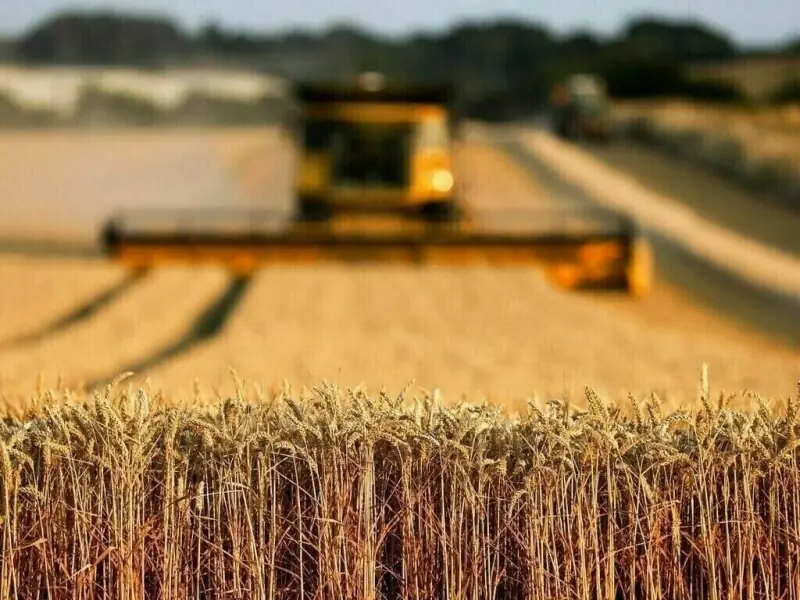KARACHI: Modern agri-tech solutions have demonstrated dramatic improvements in productivity and resource efficiency. If Pakistan’s farms, including those located in Gilgit-Baltistan, adopt tools like precision irrigation, AI-based advisory, and IoT monitoring, yields could rise by up to 30% and cultivation losses could drop 75%, translating into billions of dollars of added value, a recent report has said.
According to a study published by Pakistan Software Houses Association (P@SHA) titled ‘AgriTech Frontiers: Scaling Smart Farming in Gilgit-Baltistan – An Implementation Roadmap’, the introduction of affordable Internet of Things (IoT) devices – such as soil moisture sensors, weather micro-stations, and smart irrigation controllers – to GB farms could revolutionize the agricultural landscape.
IoT sensors can provide real-time data on conditions like soil humidity and temperature, enabling farmers to optimize water and fertilizer use. In a pilot in Sindh, Pakistan, small farmers used IoT soil probes combined with weather data to reduce water usage by 37% and cut fertilizer and pesticide use by 27%, while increasing crop yield by 27%, the report said.
This “more with less” outcome is exactly what GB’s resource-constrained farmers need, it added.
Deploying similar climate-resilient precision farming projects in GB (perhaps with support from innovation funds like the GSMA grant used in Sindh) could help farmers adapt to shorter growing seasons and water scarcity, P@SHA believes.
Notably, these systems can be paired with cloud platforms that analyze the sensor data and send simple advisories to farmers (e.g. “Time to irrigate plot A” or “Frost expected tonight, cover your crop”).
Ensuring the interface is user-friendly – SMS alerts in local language or automated voice calls for those with basic phones – is crucial so that low-literacy users benefit.
To bridge the digital divide, the report recommends incorporating basic digital skills training into agricultural extension programs. For example, teaching farmers (and their family members) how to use a smartphone, how to look up weather forecasts, or use WhatsApp to seek advice on crops. Community centers, schools, or libraries in GB can host regular training sessions where younger, tech-savvy individuals coach older farmers on phone use.
GB’s unique climate allows it to grow premium produce (fruits, nuts, off-season vegetables) that could fetch high prices in national and export markets. Improving cold chain logistics and market linkages can capitalize on this.
The challenges GB faces
Despite its potential, GB’s agriculture remains under-developed and fragile. Geographic isolation and a patchy road network make it difficult for farmers to obtain inputs or sell produce beyond local markets. A short growing season (due to harsh winters and high altitude) limits cropping cycles and increases climatic risks. Inadequate infrastructure – from irrigation channels to cold storage facilities – contributes to high post-harvest losses and food insecurity.
Socio-economic factors compound these issues: many farming communities have limited access to education, financing, and modern farming knowledge, which has led to low productivity and out-migration of youth.
To address these challenges, stakeholders have begun laying groundwork for innovation. As part of the GB Development Agenda, programs like the ‘Economic Transformation Initiative Gilgit-Baltistan (ETI-GB)’ (a $120 million project supported by the UN’s International Fund for Agricultural Development) have made significant strides in basic infrastructure and land development.
ETI-GB, active since 2016, has irrigated over 50,000 acres of new land and built 385 km of farm-to-market roads across all 10 districts of GB, greatly expanding agricultural areas and connectivity.
In June 2024, the first shipment of six tons of fresh cherries was sent to China in a reefer container. About 5,000 tons of cherries in 14 different varieties are produced in Gilgit-Baltistan per season. Over 100 cherry orchards in Gilgit-Baltistan, along with a cold storage and packing facility, are now registered with China’s General Administration of Customs (GACC), enabling direct export.
For GB’s constrained farming area, these gains are especially critical – squeezing more output from each acre and reducing waste. Even simple interventions (e.g. solar dryers for apricots, drip irrigation systems, or SMS alert services) can yield outsized benefits in a context where baseline productivity is low.


